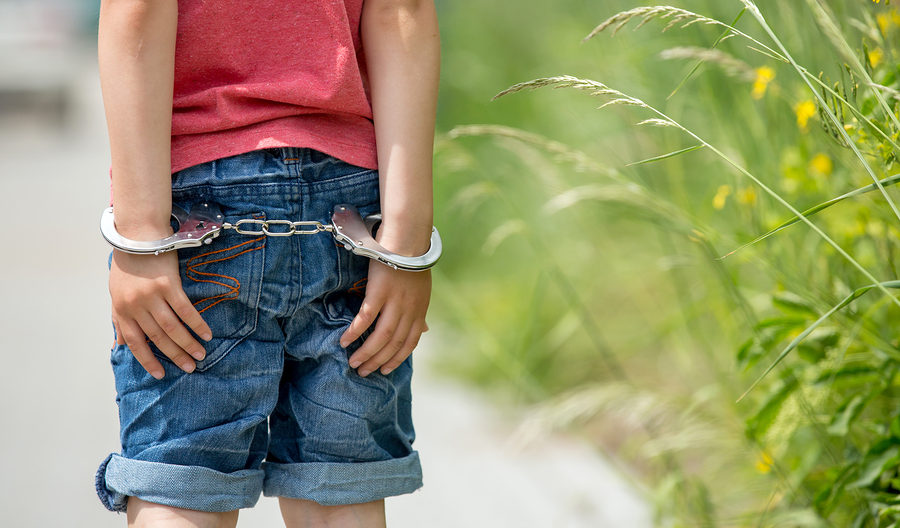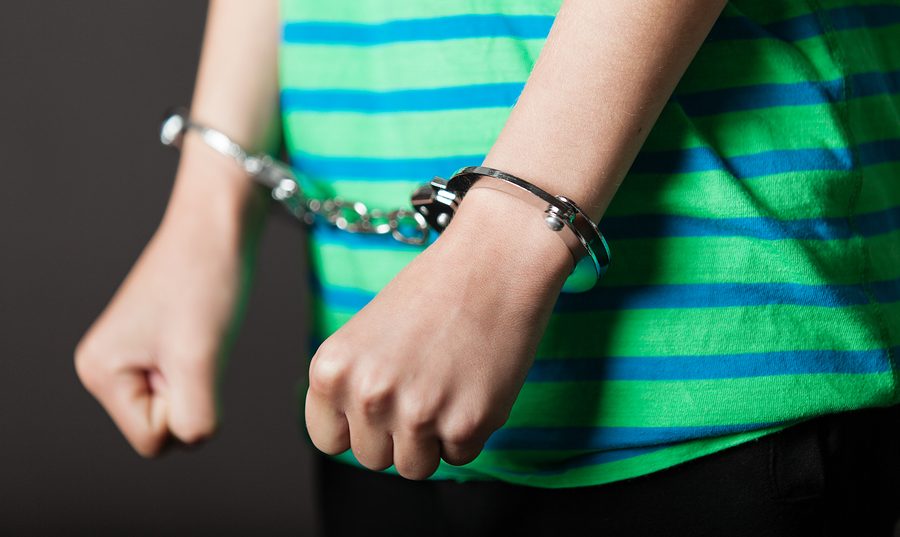Most might laugh at the idea of a police officer handcuffing and detaining a kid. But the truth is, “kids” are arrested every day, and for a wide range of criminal infractions and offenses. The key here when answering the question of legality is your definition of “kid.” A kid can be both a minor and a juvenile, depending on their age. Once you know which legal categorization applies to your children, you can better understand which types of criminal penalties they might face in the case that they are caught breaking the law.
Continue reading to learn the difference between a minor and a juvenile, and whether or not a cop can arrest them in Indiana.

Minor vs. Juvenile
A minor is any person that is prohibited to perform a certain activity, such as driving a car, voting, and drinking alcohol. For instance, a person under the age of 21 is a minor when it comes to alcohol consumption, but not for smoking or voting, and a person under the age of 18 is a minor when it comes to smoking or voting. In contrast, juveniles are specifically persons between a certain ages. So, a minor can also be a juvenile.
State Laws for Minors and Juveniles
Minors can be anyone between the ages of 16 years old and 21 years old, depending on the law in question. So yes, cops can and will arrest minors if they are caught breaking the law. The type of court system they are tried in will depend on whether or not they are under or over 18 years old. For instance, if a 17 year old is caught smoking and in possession of cigarettes, they can face criminal charges in the juvenile court system. If a 20 year old is caught consuming, buying, or intoxicated on alcohol, they will face charges in the adult court system.
Juveniles
Juveniles between the ages of 11 and 17 years old can be arrested by a police officer if they are caught breaking the law. Every state has their own set of laws surrounding criminal procedure and penalization of juveniles, but all juveniles are generally tried in juvenile court. For teenagers that are close to the age of 18 and have committed serious crimes, such as murder, they will likely be tried as an adult. There are various factors that influence the judicial course of action for a juvenile, which is why it is imperative to speak with a licensed Indiana criminal lawyer who can educate you on your child’s case and best strategies for defense.
Children Under 10 Years Old
If a child under the age of 10 years old commits a crime, they are not tried in the juvenile court system. Instead, they are entered into a state-run or government-administrated social services program. Here, they are evaluated and rehabilitated by professionals in the social service and child care industries. See our blog, “Do I Need an Attorney if My Kid is Arrested?” for help with legal guidance regarding children.
Juvenile Criminal Defense in Indiana
Call David E. Lewis, Attorney at Law, at 317-636-7514 if your child has been charged with a crime in Indianapolis or anywhere else within Central Indiana. Our law firm offers aggressive and experienced criminal defense for juveniles and minors who are facing criminal charges in Indiana. Don’t settle for an attorney that doesn’t have the drive. Attorney David E. Lewis will stop at nothing to protect your rights and preserve your freedoms. We also offer criminal record expungement services to help clean up your criminal history and improve your quality of life!





